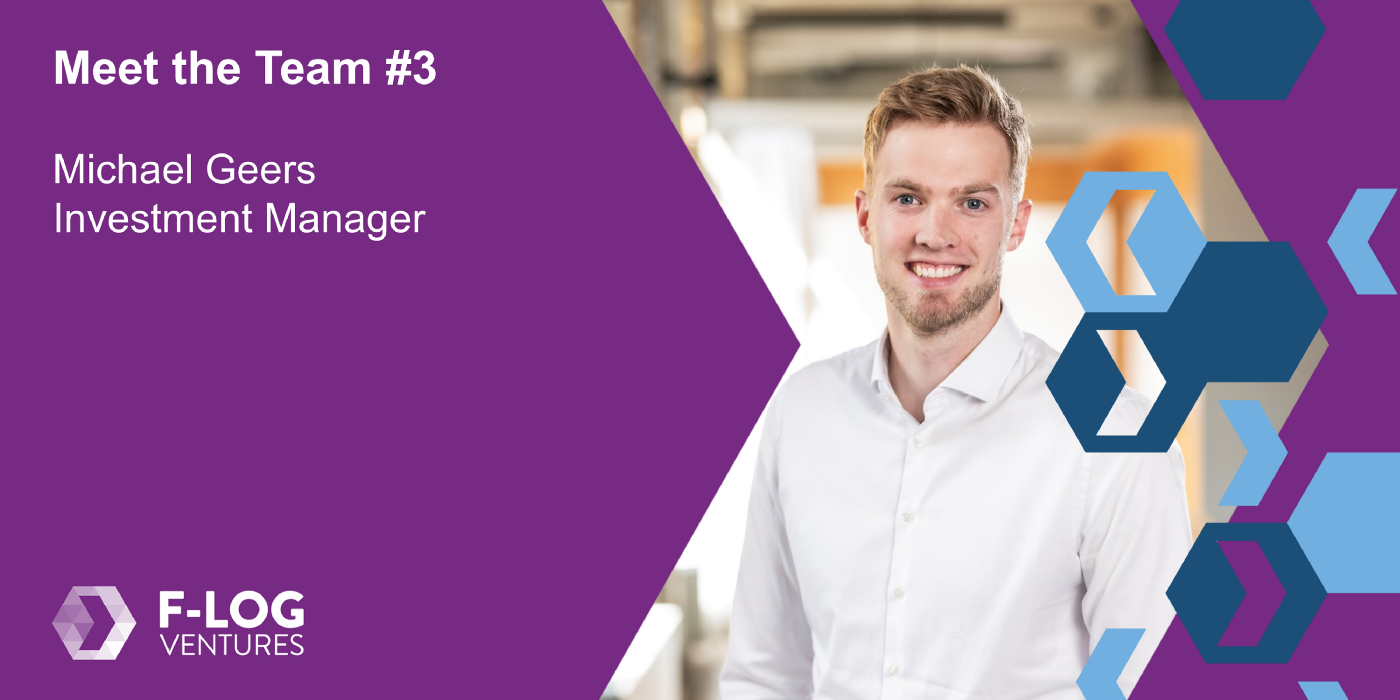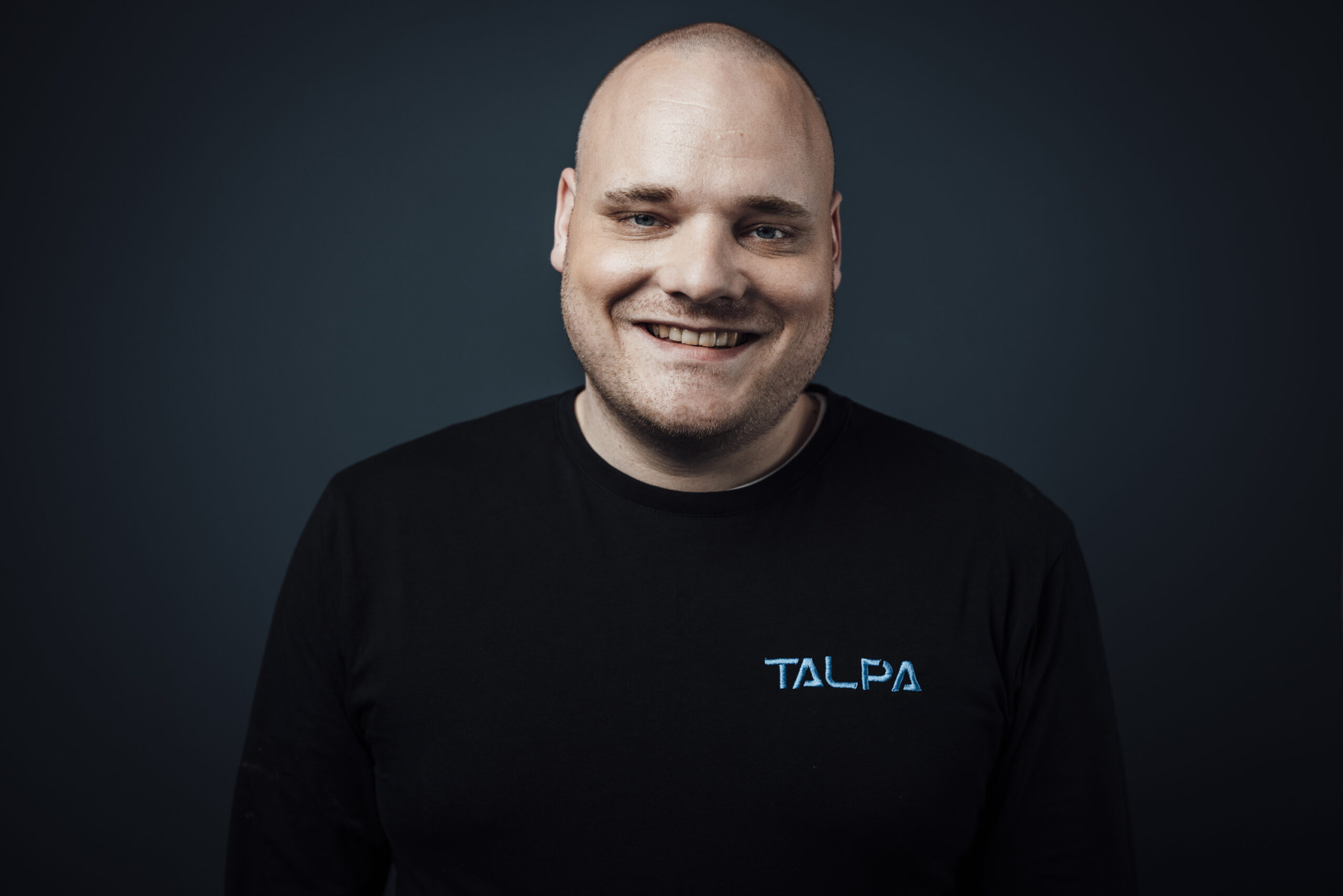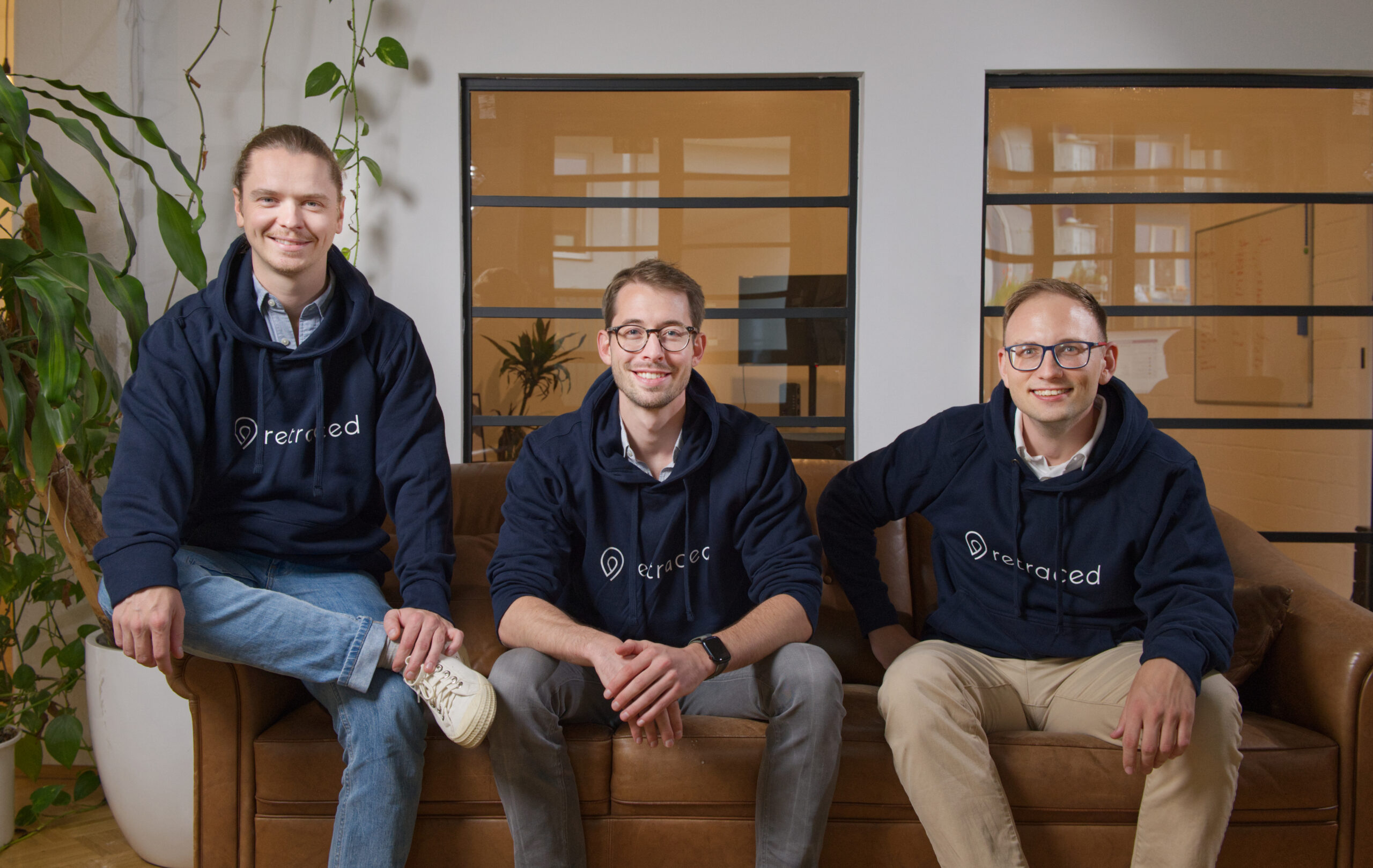Who else is behind F-LOG? To give you a better idea of the team we prepared some questions for each of them. Next up: Michael.

What does working in Venture Capital mean to you?
First and foremost, to me, it means always questioning your beliefs, every day. In the VC market, you work on issues that often go 100% against existing industry logic. That is super exciting! You get to work a lot with the latest technologies and great founders! The work is very meaningful because you help these founders build something very big and valuable, solve problems, and create jobs.
What was your most important lesson learnt in Venture Capital so far?
My job consists to a large extent of asking questions and listening. Coming from a professional role where I was more used to having to give answers, this was new to me at first. But I love listening to founders, asking the right questions, understanding their true motivation, and learning together with them.
What was your journey into the world of Venture Capital?
My professional background is in logistics. I spent three years driving strategic projects and strategy development in the Corporate Development department of our investor FIEGE, gaining very deep insights into logistics market segments and customer pain points therein. When F-LOG Ventures was founded, it was clear to me that I wanted to become part of this team. My network in the industry helps me a lot today to evaluate new business models and to really help the founders of our portfolio companies. My academic background is more broadly in business administration. I studied in Germany, England, and Indonesia.
What makes a great Venture Capitalist?
Short answer: Everything that comes after the funds have been transferred.
What is your favorite topic in LogTech at the moment?
It is difficult to choose just one. A challenge that moves me enormously is the digitalization of the small logistics players. Many business models are limited to corporates with strong purchasing power as customers. On the other hand, there are many lightweights in logistics which together make up at least 90% of the market. The European industrial space is highly fragmented. We see a huge potential in digital and technology-based standard tools for these small logistics players who will be the first to suffer from the shortage of skilled workers and are all the more dependent on digitalizing and automating their logistics and information processes.
Do you see any specific challenges that founders of LogTech startups are facing more than in other domains?
Most of the teams we work with need a very strong understanding of B2B processes that have developed over a long time, differ widely from one supply chain to another and rely on an outdated IT infrastructure. Incorporating new digital products into or building on top of these environments is not always an easy task. Having the right sales and onboarding process in place is therefore highly important. Otherwise, there is a risk of sales cycles becoming too long. From my perspective, this aspect is even more dominant in the logistics and supply chain domain than in other B2B domains, such as HR or accounting.
What can you learn for your everyday personal life?
Aim towards a higher goal that others think is unachievable. Then, find the right supporters and prove the critics wrong.



